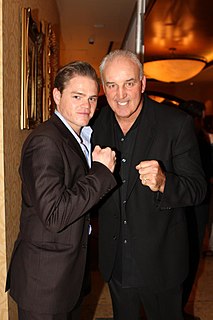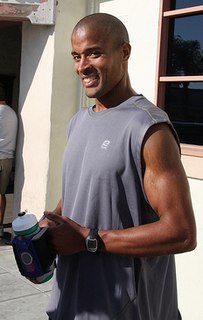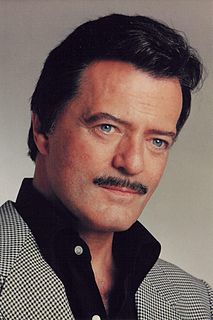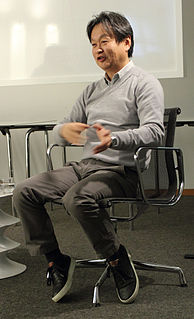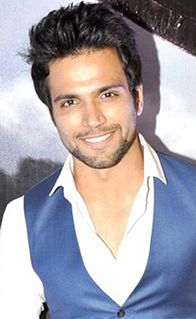A Quote by Richard Thompson
You want the audience to be uncomfortable.
Quote Topics
Related Quotes
Here's the thing, with comedy - and I learned this from Will Ferrell - you can't be ashamed. If you're doing comedy, you have to fully commit to the joke. Shame is not part of it. If you act shy or uncomfortable about your body, that makes the audience shy and uncomfortable. And in a comedy you just want them to loosen up and laugh.
I can say, 'I am terribly frightened and fear is terrible and awful and it makes me uncomfortable, so I won't do that because it makes me uncomfortable.' Or I could say, 'Get used to being uncomfortable. It is uncomfortable doing something that's risky. But so what? Do you want to stagnate and just be comfortable?'
The reason I became 297 pounds is because that was comfortable. What was very uncomfortable was running. What was very uncomfortable was being on a diet. What was very uncomfortable was trying to face things that I didn't want to face. And I also realized, when I was really big, I had no growth. Why? Because I was living comfortable.
Leadership is scarce because few people are willing to go through the discomfort required to lead. This scarcity makes leadership valuable...It's uncomfortable to stand up in front of strangers. It's uncomfortable to propose an idea that might fail. It's uncomfortable to challenge the status quo. It's uncomfortable to resist the urge to settle...If you're not uncomfortable in your work as a leader, it's almost certain you're not reaching your potential as a leader.
When the poet's sentiments are overly visible, the audience may become uncomfortable. Japanese ritual is the opposite. By writing simply and only about what is there, the audience is drawn into the poet's world. Their imagination is stimulated, and a silent connection is established. I believe this is where the most important aspect of the Japanese sense of beauty lies.
As an actor, you should always keep your trump card hidden from your audience. I want the audience to keep expecting more and more from me. I want to do 'different' work - good and memorable roles - so that audience appreciate me more. That's why I love to surprise my audience with something they never expect me to do.





